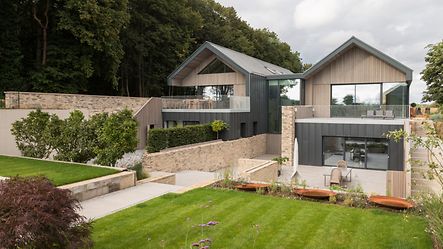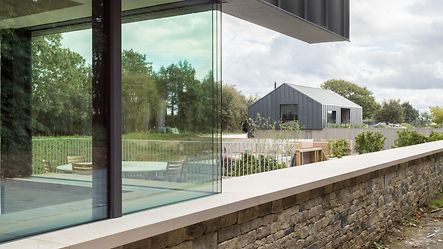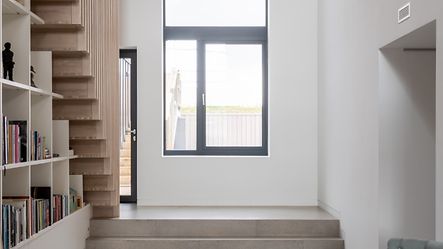Is Passivhaus the future of your home?
If you’re building your own home or doing extensive renovations that include improvements such as replacing windows and doors, the terms ‘Passivhaus’ or “passive house standard” might have come up in your research.

What does the certification actually mean?
Passivhaus is a certification for new buildings that shows it reaches a certain high energy efficiency standard. It adopts a whole-building approach, focused on high-quality construction. The ‘passive’ in the name refers to passive methods of heating that can be more effectively utilised when adopting this building method. Many people choose to build their homes to this standard and have it certified as it can add value to a home and significantly lower energy costs.
It's also possible to build your home to passive house standards and not have it certified, which allows a little more freedom when it comes to material choices.

What if I’m retrofitting?
You may have also come across the term ‘EnerPHit’. This is a standard also from the Passivhaus Institute but specifically for retrofit projects. The conditions are slightly relaxed as it takes into account that the existing architecture or conservation issues may mean that meeting the standard fully is not feasible.
So, what’s needed?
Achieving Passivhaus Standard in the UK, as set out by the official institute, typically involves:
- accurate design modelling using the Passive House Planning Package (PHPP)
- very high levels of insulation
- extremely high-performance windows with insulated frames
- airtight building fabric
- 'thermal bridge free' construction
- a Mechanical Ventilation system with Heat Recovery (MVHR)

Does ‘airtight construction’ mean I can’t open the windows?
There are a few misconceptions around this. Rest assured, you are still able to open your windows in a passive house.
It is a legal requirement to have an openable window in every habitable room – this doesn’t change if your house is Passivhaus certified. You can open the windows, but you might not feel the need to because you’ll have fresh filtered air coming in from your MVHR.
What windows are advisable to reach the standard?
Aluminium windows and doors from Schüco with a basic depth of 90mm fulfil the highest demands in terms of quality and offer numerous benefits that lend themselves ideally to Passivhaus building: a high degree of thermal insulation for energy efficiency and design-orientated, sustainable architecture, alongside excellent stability, minimal maintenance and a long service life.
The AWS 90.SI+, AWS 90.SI+ Green and 90 BS.SI+ feature maximum thermal insulation, which has made them popular choices for Passivhaus projects in the past.
The Schüco AWS 90 BS.SI+ series features narrow face widths and concealed vents which allow solutions in single and double-vent designs. With a basic depth of 95mm, passive house standard can be achieved.
This stunning home in Oxfordshire was built to this standard using sliding doors and windows from the Schüco SI (Super Insulation) and HI (High Insulation) ranges.

If Passivhaus buildings rely on passive methods of heating, will my house have central heating?
Nothing is self-heating: you will always want some form of backup heating. However, buildings using passive windows and doors are extremely good at retaining warmth, so they only require minimal heating. Passive sources of heat include sunlight, body heat or even turning on appliances like the TV, which are utilised to reduce the reliance on active heating sources.
Will this investment actually save me money in the long run?
Standard Passivhaus construction can be more expensive, but in the long term you can save a lot of money through energy savings, along with adding value and energy efficiency to your property.
Find your Schüco partner
Schüco works with a network of partners, who are trained to manufacture and install Schüco systems. A Schüco partner will support you with your project, from tailored design advice to the manufacture and installation of your bespoke Schüco products.